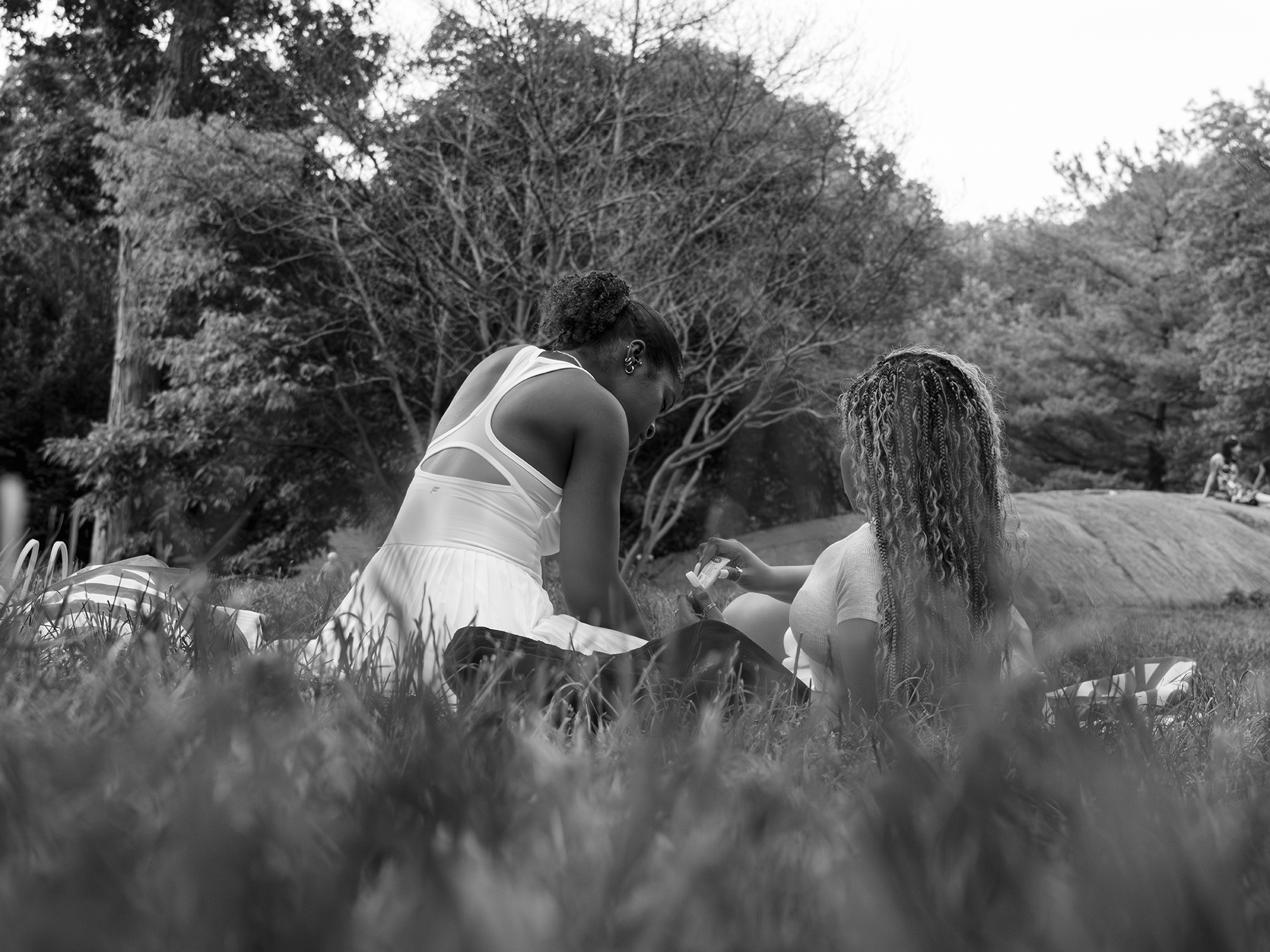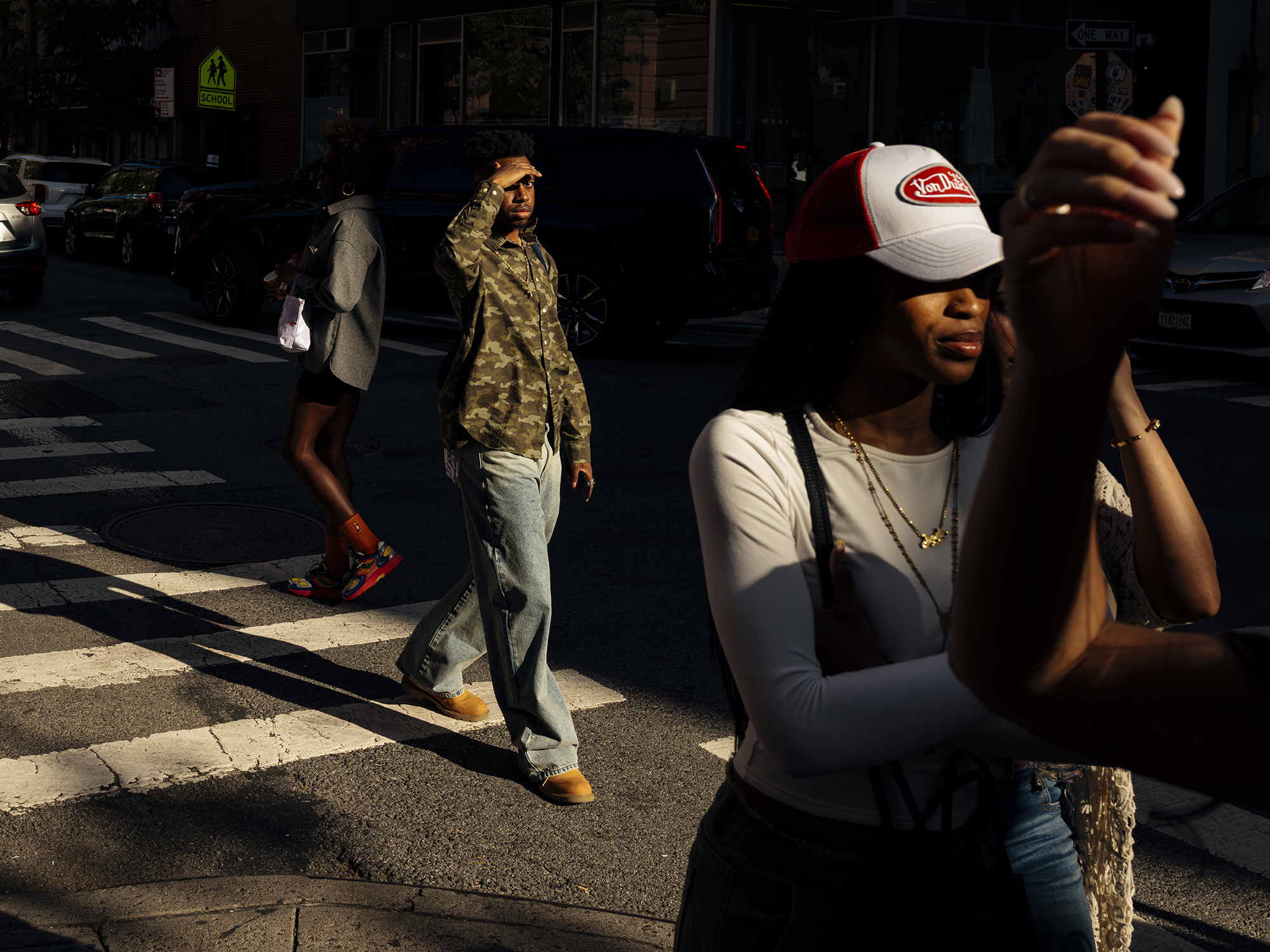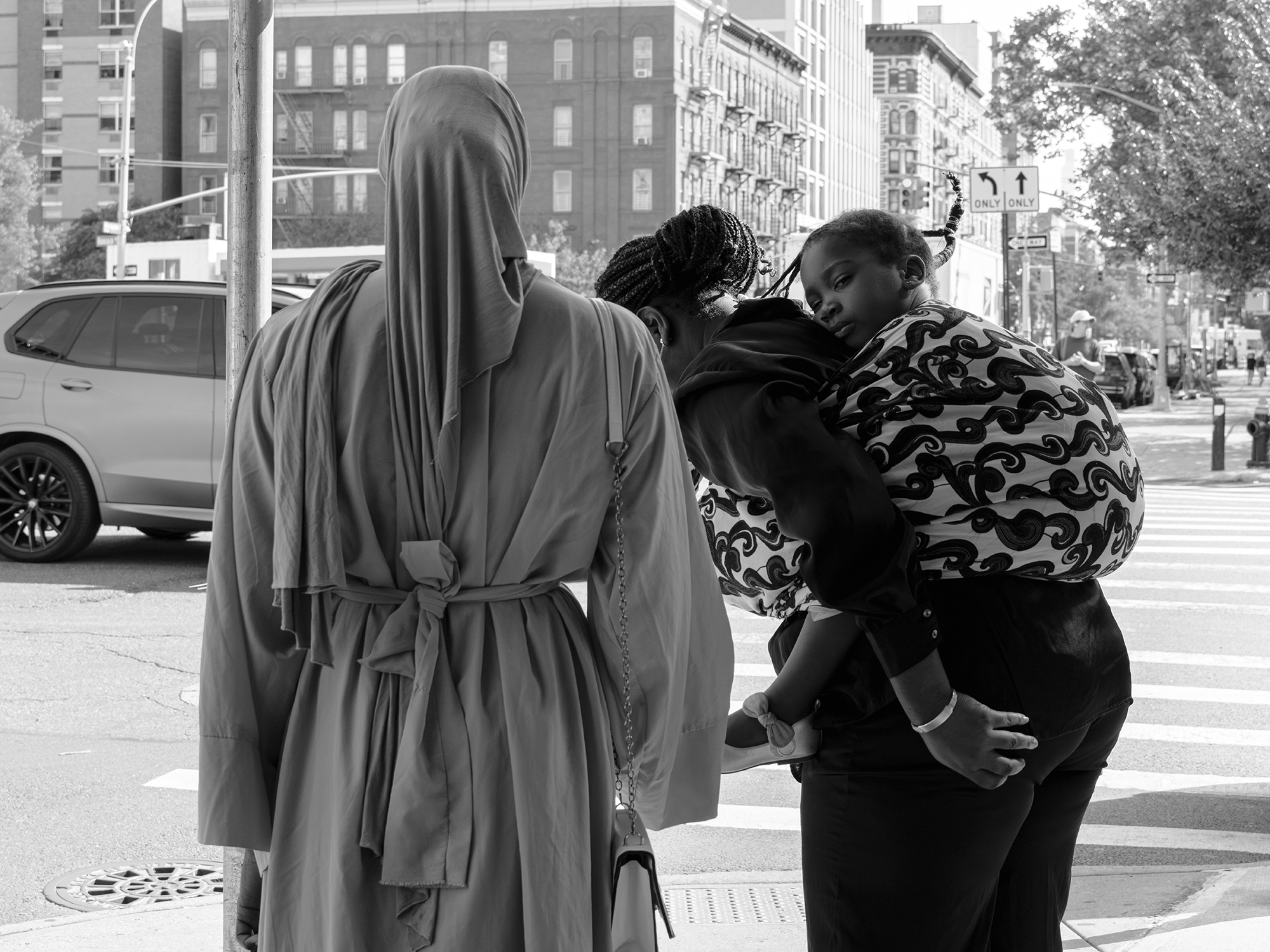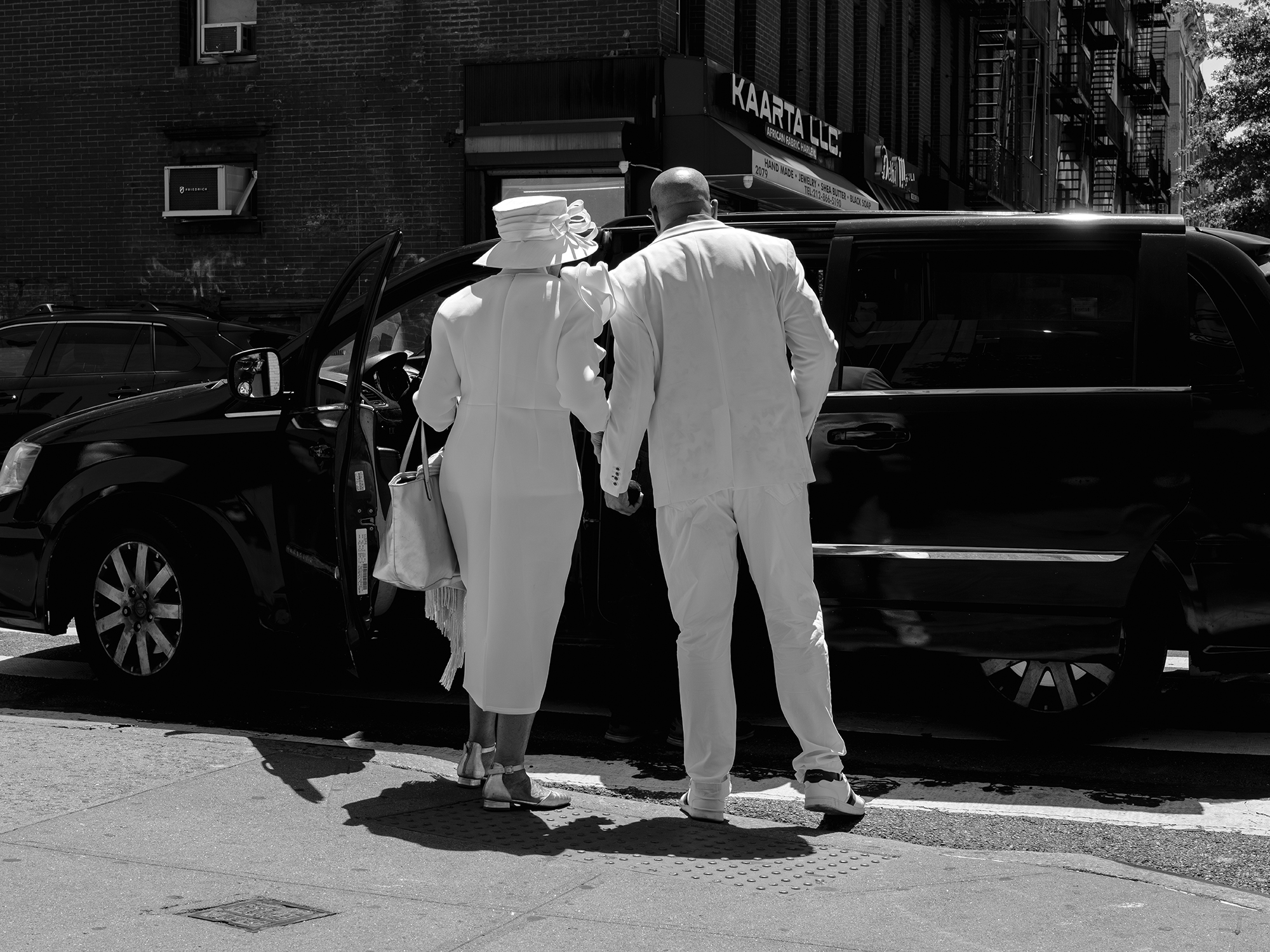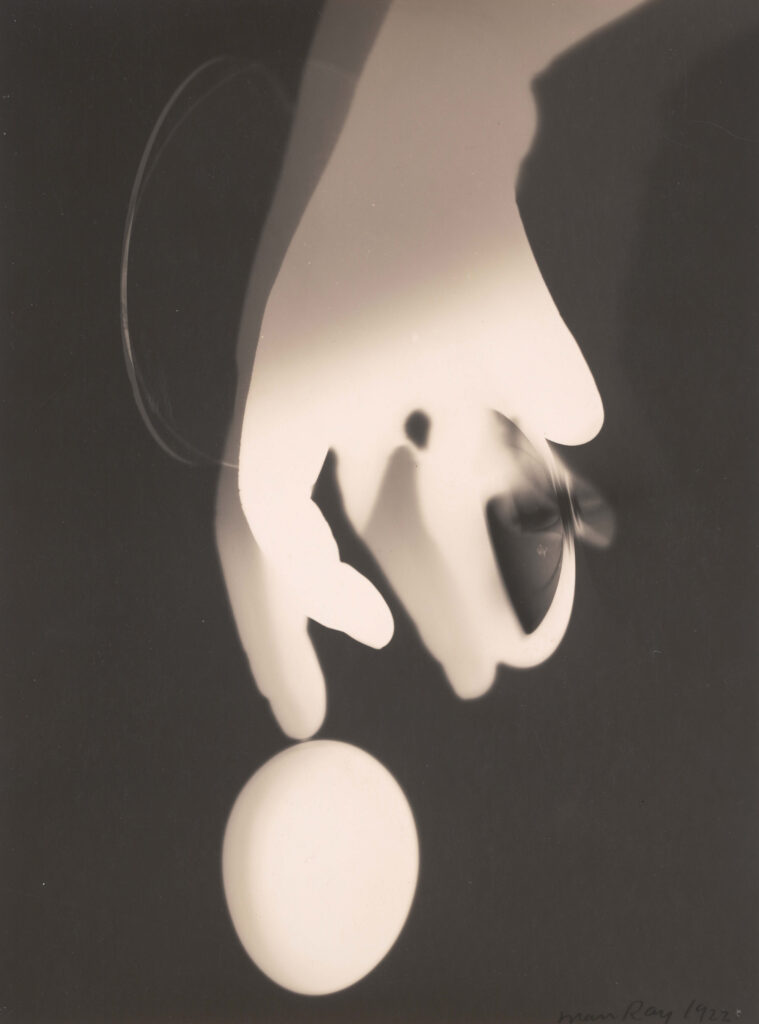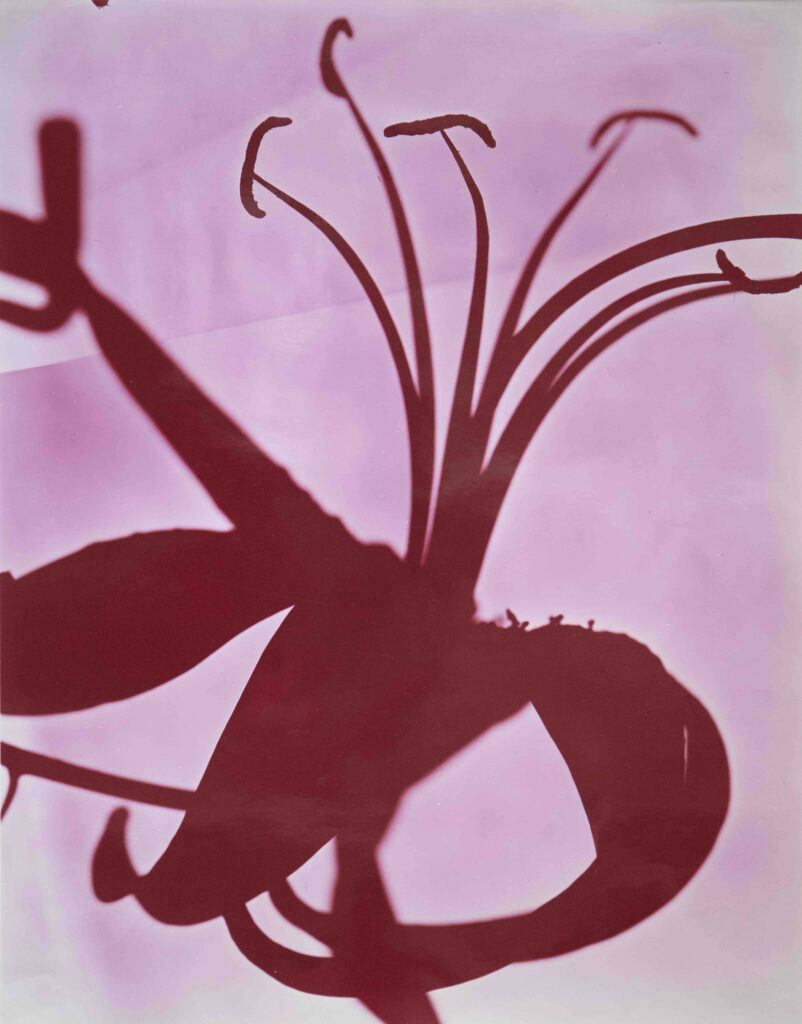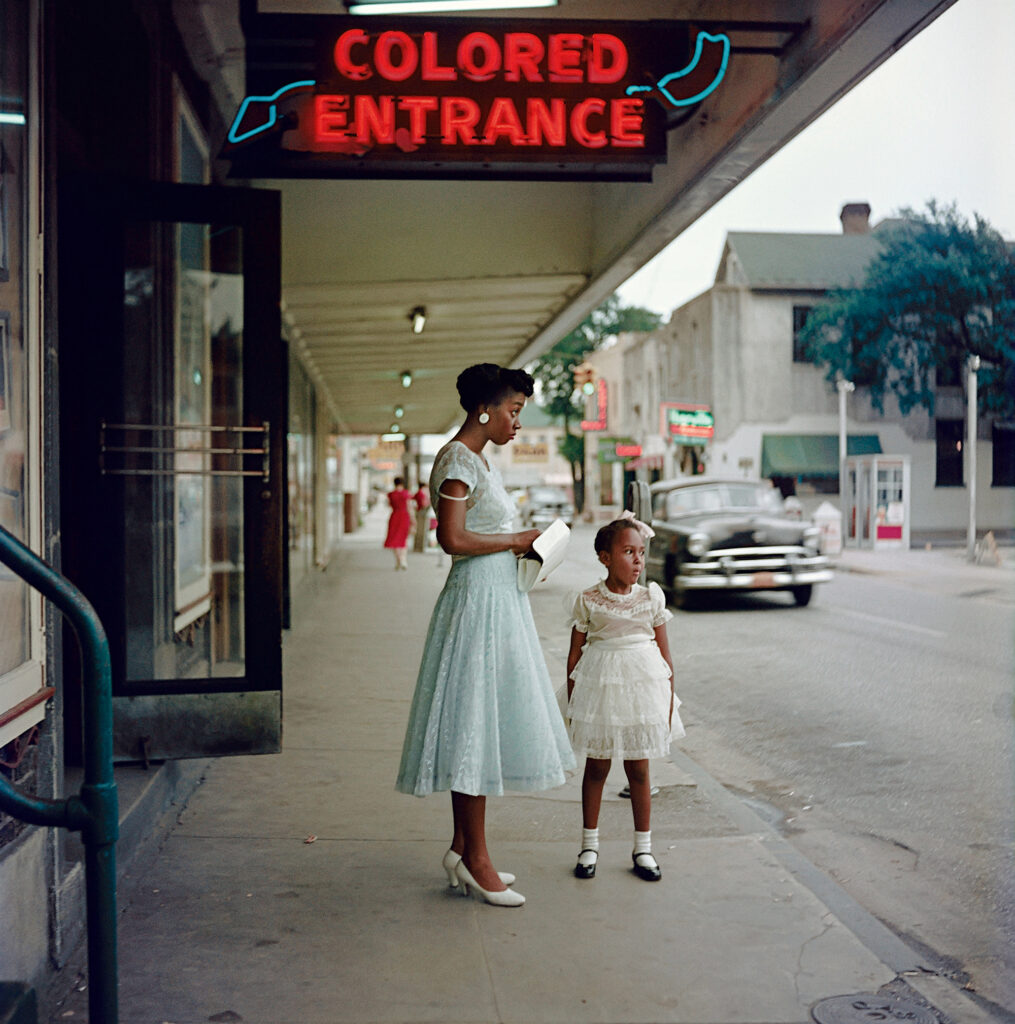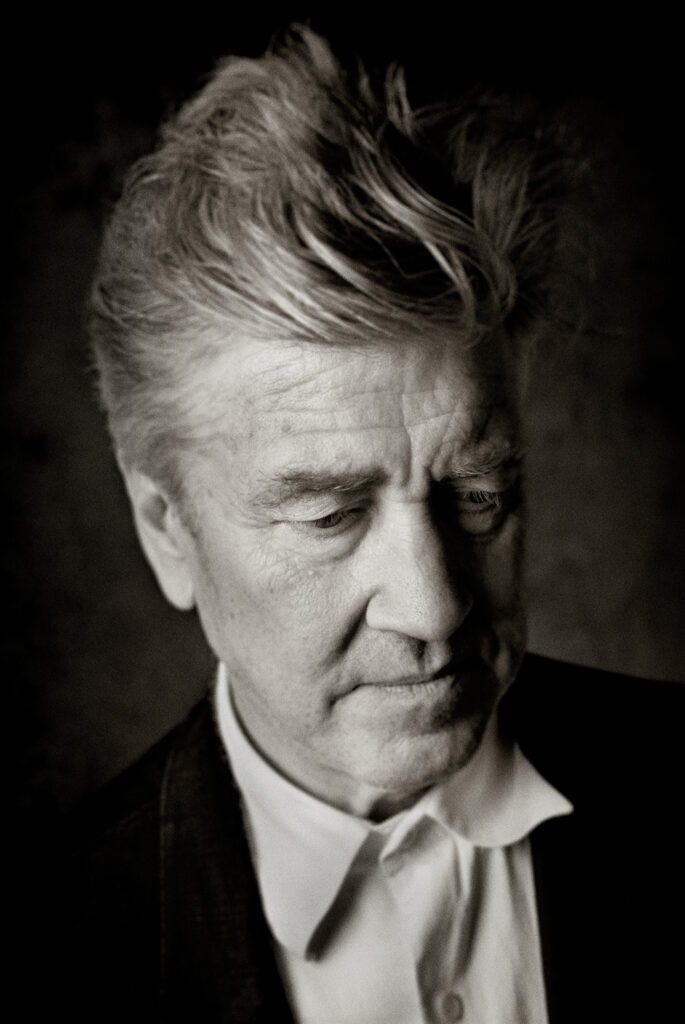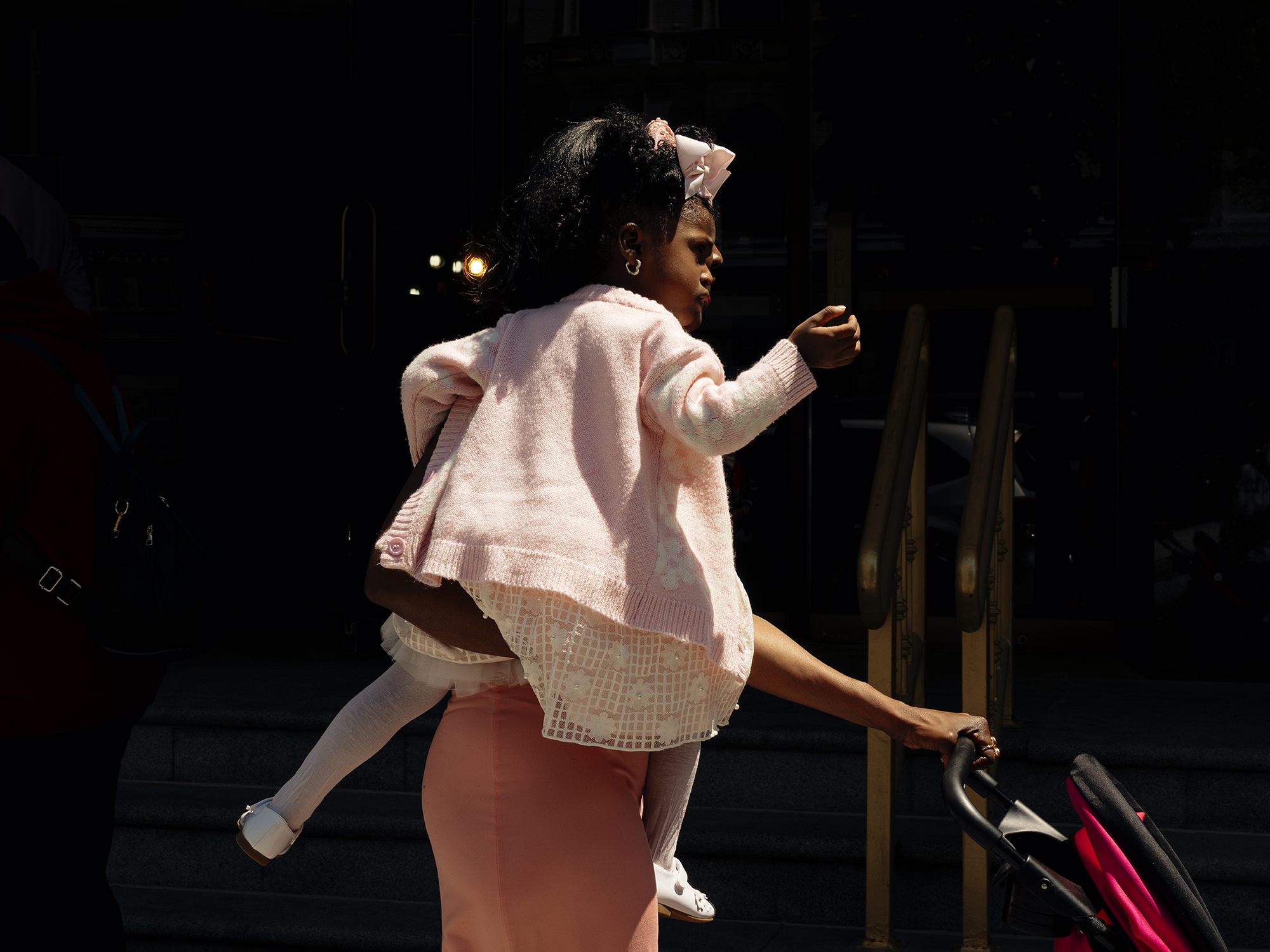
Featured
Ike Edeani’s Quest for Sartorial Flair
Roaming Harlem on the cusp of summer, the photographer finds New Yorkers abounding in Sunday-best dazzle.
On a recent Sunday afternoon in Harlem, Ike Edeani spent two minutes in a bustling beauty salon on a quest for gestures of vibrant Black personal style. The beauty salon is, by any measure, the service station of Black vernacular style. In a testament to Edeani’s razor-sharp eye, those two minutes produced a stunning black-and-white photograph that tells a story about hair braiding, tenderness, labor, and intimacy within the Black beauty shop.
By slowing down to focus on the details, Edeani creates an image dense with meaning. “The woman braiding her hair has tribal marks, which I know from Nigeria,” Edeani says. “Here are these two Black women with completely different complexions and backgrounds. You’ve got the tribal marks, you’ve got the tattoo, the chain, the hoodie. For me, widening the frame made the image much stronger, much more of a story.”


Born in Nigeria before moving to the United States at the age of sixteen, Edeani is a self-taught photographer who initially trained as an architect. Even so, he always knew he wanted to be an artist. At a young age, he dabbled in drawing and still life painting, and realized how easy it was for him to reproduce things he saw in the world. “I would draw and paint all the time,” he shares. “But in Nigeria, the only kind of career options that are visible to you, at least as a kid, are doctor, engineer, or lawyer. I wasn’t interested in science and I knew I wasn’t going to be a doctor.”
Architecture was a happy medium between creative expression and the safety of a stable career. After practicing in the field for a few years, he soon realized that he didn’t want to build anything, but he was interested in design.
What better place to see design than through Black style on the streets of New York? As proof of life in the city, the street has excited the brushstrokes and lenses of a wide range of artists and photographers, from the gritty paintings of John Sloan in the early twentieth century to photographers like Roy DeCarava, Jamel Shabazz, and Bill Cunningham. Edeani extends this legacy by turning his cinematic flair toward the brilliance of the everyday. Black vernacular style—the kind of vibrant personal style that takes place far outside an extractive fashion system driven by labels, trends, and fashion seasons—has a mind of its own.
Church Sunday. Harlem. Little girls dressed in stockings and barrettes. Mothers, grandmothers, and aunties in hats, head wraps, and pencil skirts. “I don’t think I could have done this project justice without including Sunday style,” Edeani says. “Sundays were when we got dressed up. Sunday was the day you show out because that’s when you go to church, which means you’re seeing everybody. That’s the Met Gala.”

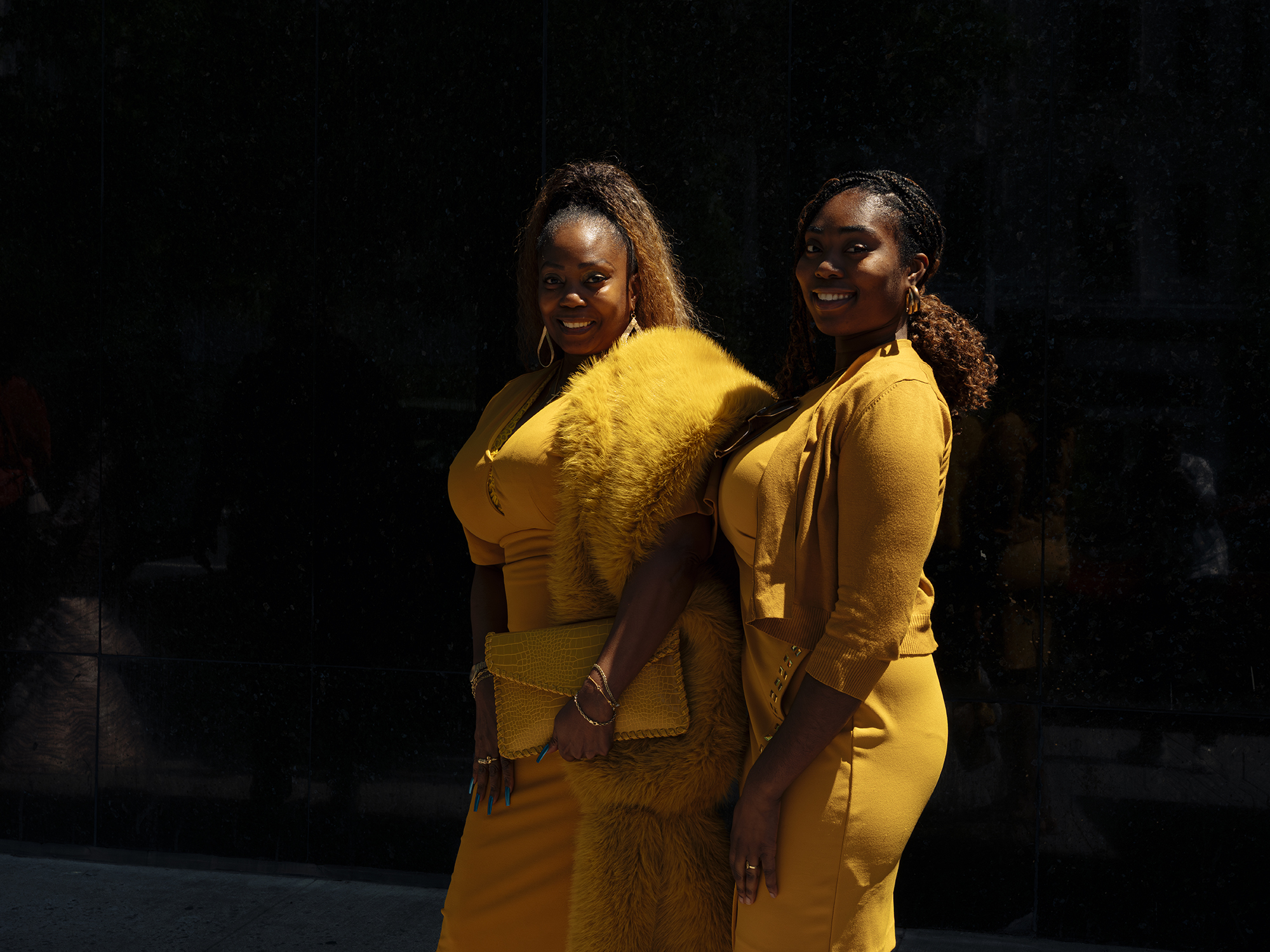
At the heart of Edeani’s work is an insistence on glimpses, gestures, and fleeting encounters, rather than posed portraits. Call it the intimacy of the moment. When we pose, we pose the way we always pose. We become hyper aware of the camera, of the photographer, and of our own awkward selves. The juice of Black personal style, for Edeani, lies in the zhuzh—a moment of expression that comes when we add our own twist, our own five-six-seven-eight set to the look, particularly for folks who work jobs that require them to wear a uniform every day. “Black folks do that better than anybody,” Edeani says, “Because we’re denied access, so you make your own shit. And I think that’s so beautiful.”
For Black folks, who exist within the frame of what the poet Dionne Brand calls “virtuosity or despair,” style is never about vanity. It’s always about creativity, personal expression, and small—even if the smallest—gestures of refusal. The way Edeani sees it, whether we’re going to church or just going about our day, “Black folks want to look good in front of other Black folks. What I really love about Black style is the idea that this is what people choose to put on before they leave the house—this is their best foot forward. And that, to me, is amazing.”
Ike Edeani’s photographs were created using FUJIFILM GFX100RF.

